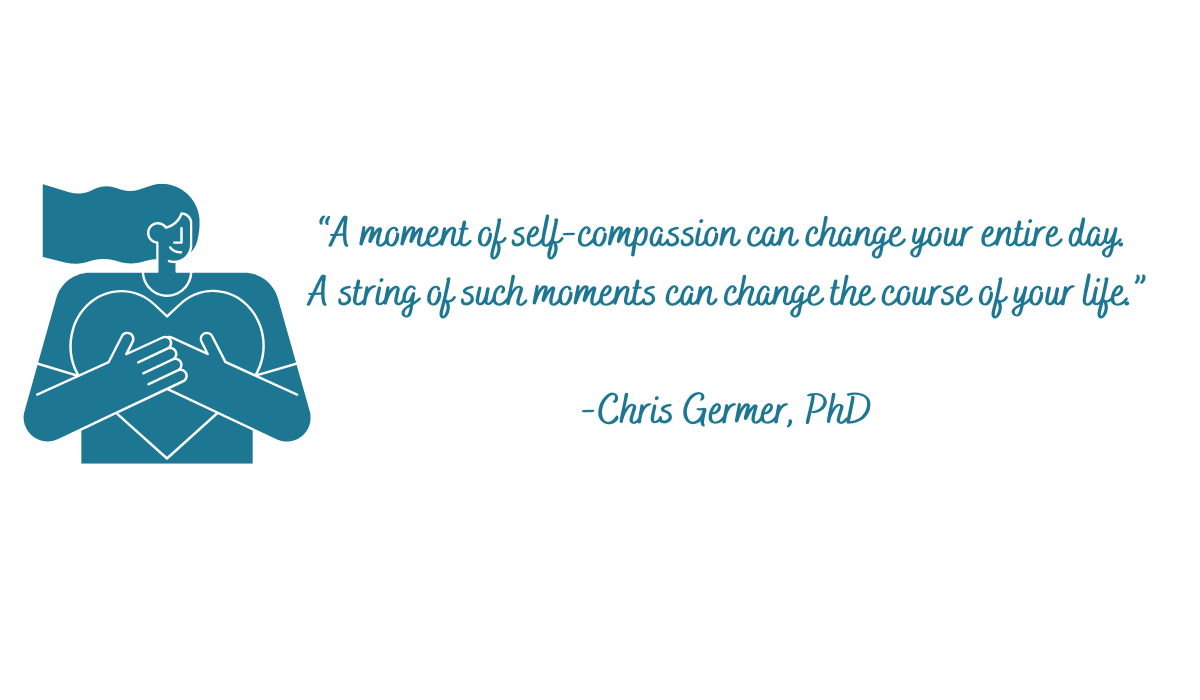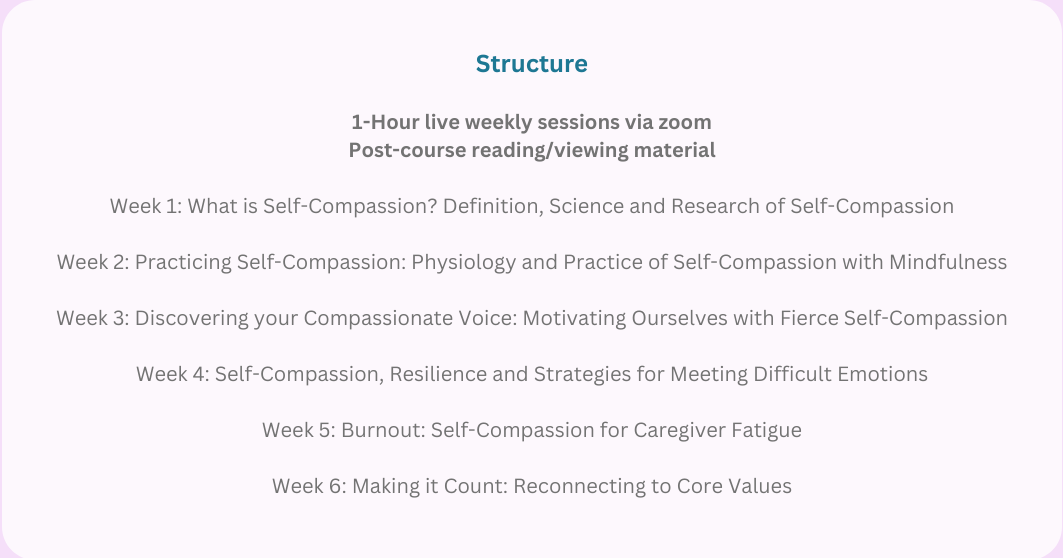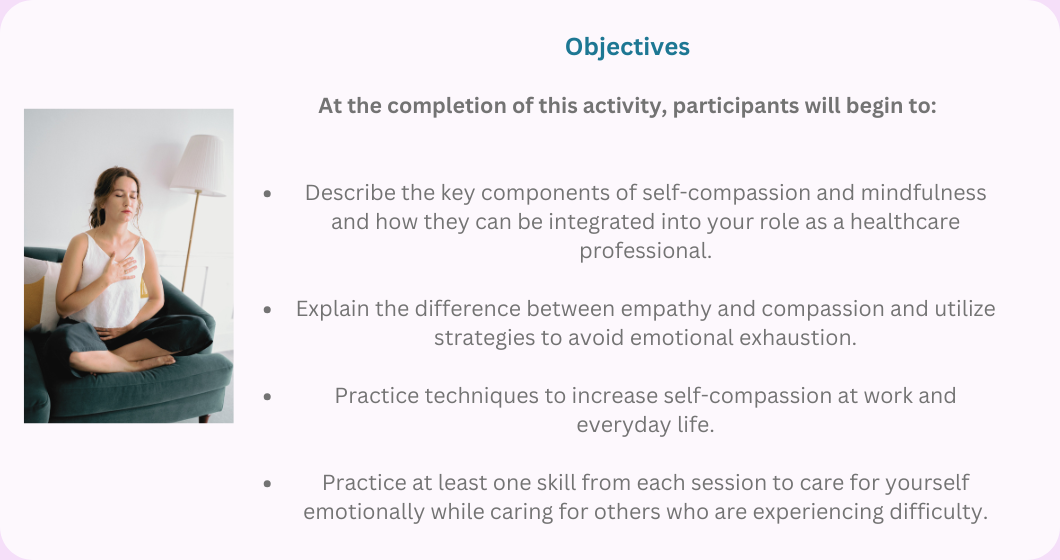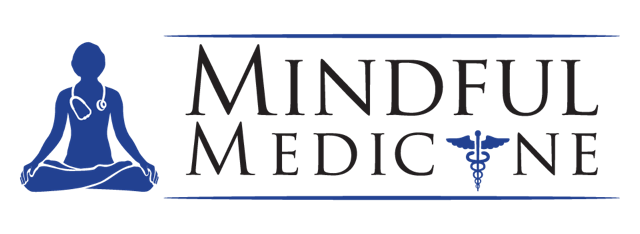
Course Description
Self-Compassion Training for Healthcare Communities (SCHC) is a 6-hr evidence-based healthcare adaptation of Mindful Self-Compassion, the empirically supported program of Dr. Kristin Neff at UT Austin and Dr. Chris Germer at Harvard Medical School. This training aims to improve wellbeing and personal resilience in healthcare professionals by teaching mindful self-compassion skills to deal with distressing emotional situations as they occur at work and at home.




Research
- In research published in the Journal of Clinical Psychology, Neff.Knox.2020 the SCHC program was found to significantly:
- Decrease: Depression, Stress, Secondary Traumatic stress, and Burnout
- Increase: Self-compassion, Mindfulness, Compassion for others, Job satisfaction in healthcare professionals
As opposed to other self-care techniques, self-compassion practices can be used on the spot while at work with patients and colleagues.
Burgeoning research is showing that self-compassion skills can be of particular benefit to health care professionals, allowing them to experience greater satisfaction in their caregiving roles, less stress, and more emotional resilience. The good news is that self-compassion skills are trainable and build your capacity to handle stressful challenges.
Burnout, including secondary traumatic stress and emotional exhaustion, is prevalent among health care professionals and is a factor contributing to turnover (Cocker & Joss, 2016; West, Dyrbye, & Shanafelt, 2018). “Chronic stress associated with emotionally intense work demands for which resources are inadequate can result in burnout,” write West, Dyrbye, & Shanafelt (2018). The purpose of the 6-week Self-Compassion Training for Healthcare Communities is to teach healthcare workers on the job skills to meet the emotional demands of their work. Mindfulness and self-compassion practices for healthcare are intended to lower the chance that professionals will end their shifts emotionally depleted and increase their likelihood of feeling accomplished and satisfied in their caregiving roles.
Two studies conducted on Dell Children’s Medical Center staff who attended the 6-week training showed participants significantly increased in self-compassion, mindfulness, compassion to others, compassion satisfaction, and feelings of personal accomplishment, and significantly decreased in levels of stress, anxiety, depression and measures of burnout (emotional exhaustion, depersonalization, and secondary traumatic stress). Other peer-reviewed literature has found self-compassion training to reduce symptoms of burnout and increase self-compassion, mindfulness, and compassion satisfaction (Delaney, M.C., 2018; Eriksson et al., 2018).
